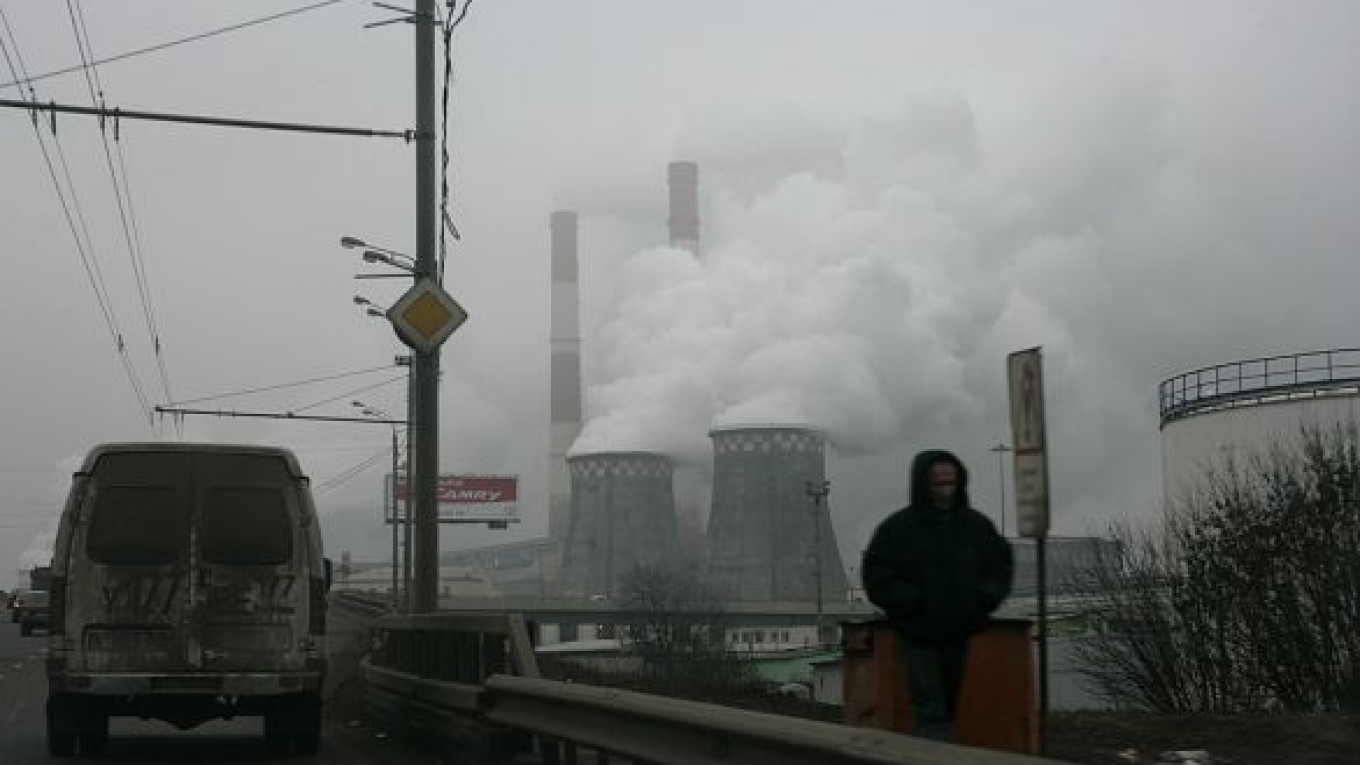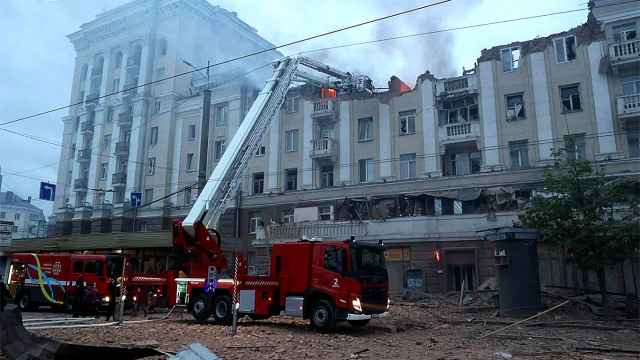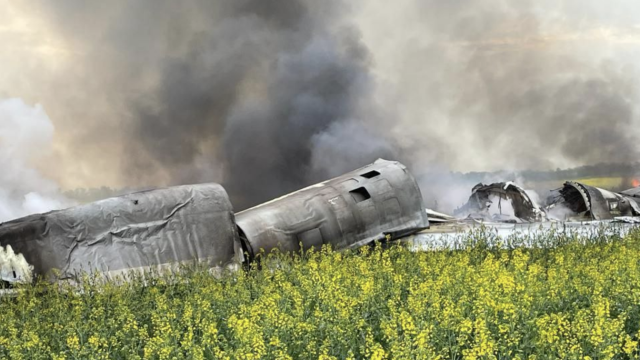Russia's chief climate negotiator said the country will "never" sign up to extend the Kyoto Protocol for a second implementation period, casting further doubt on chances of a deal at the international climate conference in South Africa at the end of this month.
"We will never sign Kyoto 2 because it would not cover every country," Oleg Shamanov, director of international cooperation on the environment at the Foreign Ministry, said late last week.
The comments came the same week that the International Energy Agency declared that the world has just five years to cut greenhouse gas emissions to avert "irreversible" climate change, putting pressure on governments to come up with a deal at the summit in Durban, which takes place from Nov. 28 to Dec. 9.
Refusal by Russia, Japan and Canada to renew Kyoto for a second period dashed hopes of an agreement at the Cancun climate talks last year.
An alliance of Pacific island states recently accused the three of trying to "stall" agreement of a new climate treaty until 2020. But Shamanov insists that the Russian position is one of practicality.
"Any question about our participation is a question about everyone's participation," he said. Essentially, Russia does not see any benefits in a legally binding consensus unless "everybody signs."
That is "not going to happen," David Burwell, head of the energy and climate program at the Carnegie Endowment in Washington, said at the meeting in Moscow attended by Shamanov on Thursday evening. "Quite frankly, the best way to be a leader is not to push for a legally binding consensus," he said in remarks apparently designed to defend the U.S. position.
When the United States refused to sign up, Russia's ratification in 2005 was instrumental in getting the original Kyoto Protocol — which created a mechanism for countries that slash carbon emissions to benefit financially — into force.
It is also the only one of the BRIC emerging economies to be party to annex No. 1 of the treaty, obligating it to reduce its carbon emissions.
At the time, it made financial common sense. Russia is one of few countries to have slashed its carbon emissions compared with 1990s levels — largely as a result of the collapse of industrial output after 1991.
That gave it a vast surplus of "carbon credits" — the currency of the Kyoto trading system — to sell to other countries.
And the country has managed to hang on to that lead even as growth returned. Between 1998 and 2008, Russian GDP nearly doubled in real terms, while carbon emissions increased only 12 percent.
In public, Russian officials insist that they are still a climate protection leader — citing the remarkable emissions reductions and President Dmitry Medvedev's ambitious 2008 energy efficiency decree, which set a target of slashing Russia's energy consumption by 40 percent by 2020.
But there is no doubt that the country could do more.
Would-be carbon traders say Russia has been slow to wake up to the financial opportunity, though interest has started to rise after an intervention from Medvedev, who in June said Russia should do more to take advantage of the UN's offsetting mechanism.
The IEA said last week that Russia could save enough energy to meet the annual energy needs of the entire United Kingdom.
Diplomats and politicians will try to hammer out the basis of a replacement international climate negotiation plan in Durban at the end of this month.
Russia is still key — both because of its diplomatic clout, and its status as the fourth-largest emitter of greenhouse gases, behind China, the United States and India.
But the main element in climate talks is "directing giant cash flows from rich countries to developing nations," said Alexei Kokorin, director of the climate change and energy program at WWF Russia. "Russia is neither a recipient nor a great contributor, it is not as important as some other countries," he added.
As such, Kokorin concedes that the chances of renewing Kyoto are effectively nil, but was not deeply critical of the Russian position — singling out instead India, China and the oil-producing Middle Eastern countries as the main obstacles to a deal.
Instead, he hopes that the summit will produce resolutions to create an international fund to finance adaptation and mitigation projects; a technology exchange deal; and a mechanism for the sensitive topic of reporting and verification of carbon emissions.
The first two points are much closer to being realized than the one about reporting.
Russia's priority is simply that "everyone signs" and that the resulting treaty is "balanced," Shamanov said.
But he insisted that officials and environmentalists are fundamentally on the same side.
"About 20 years ago, there was a time when environmental NGOs were the forces of light battling the dark legions of bureaucrats. We are not the dark side anymore," he told the meeting.






